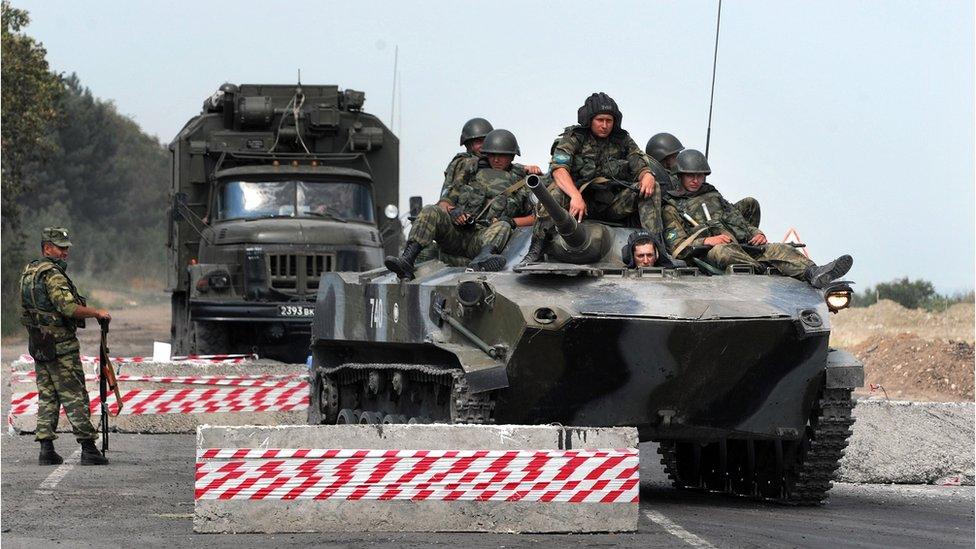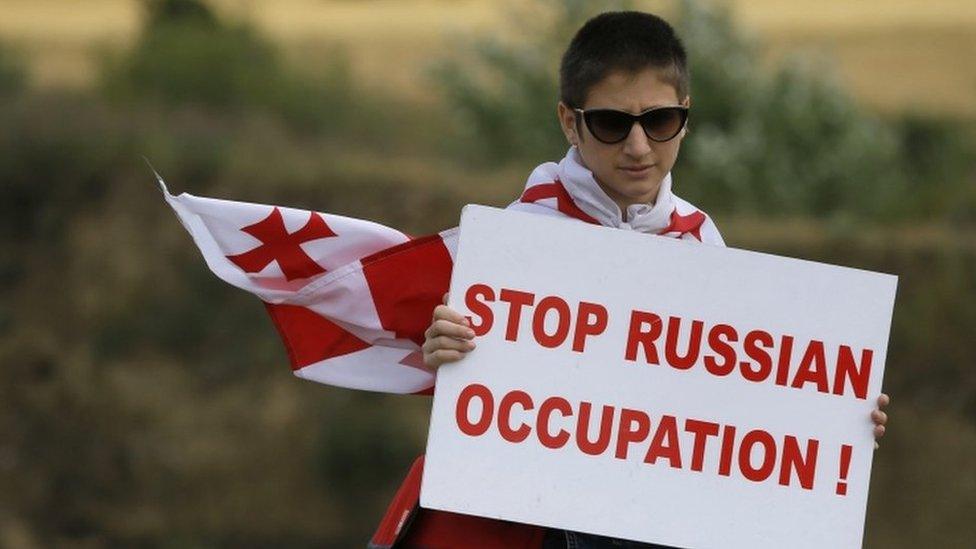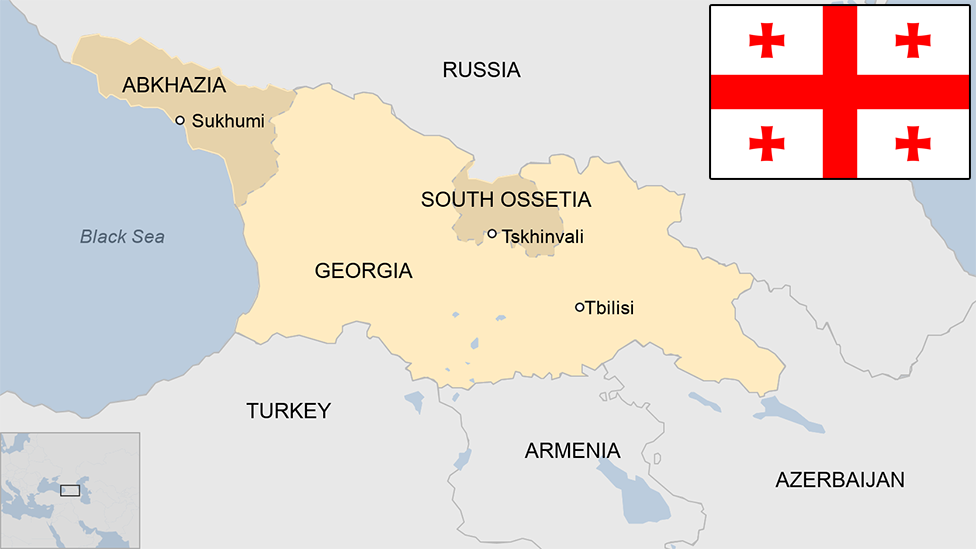ICC to probe possible war crimes in Russia-Georgia conflict
- Published

The conflict between Georgian and Russian forces in 2008 last for five days
The prosecutor of the International Criminal Court (ICC) has said she will investigate, external Russian and Georgian forces over possible war crimes.
The investigation relates to a five-day conflict in 2008 centred on South Ossetia, a breakaway region of Georgia.
Fatou Bensouda said she had evidence suggesting South Ossetian forces killed up to 113 ethnic Georgian civilians, and both sides killed peacekeepers.
Russian forces may have participated in the killing of civilians, she added.
The war began after an escalation of clashes between pro-Russian separatists and Georgian forces, who tried to seize back South Ossetia.
But Russian troops army quickly retook the area and pushed deeper into Georgian territory, stopping just short of the capital, Tbilisi.
Nearly 1,000 people were killed while tens of thousands of Georgians living in the disputed areas were forced out of their homes.
The ICC said on Tuesday that Ms Bensouda had evidence that both sides had killed peacekeepers - a war crime.
The statement said shells from South Ossetian positions had killed two Georgian peacekeepers, while Georgian forces had killed 10 Russian peacekeepers and destroyed a medical facility.
Prosecutors said there was evidence that up to 18,500 people were uprooted from their homes as part of a "forcible displacement campaign" conducted by South Ossetian authorities, and that the ethnic Georgian population in the conflict zone was reduced by at least 75%.
The ICC said Ms Bensouda has asked judges for permission to investigate after an apparent lack of progress with Georgia's inquiry into its own forces' alleged crimes.
Judges must now decide whether to authorise a full investigation, which could risk inflaming tensions between Russia and Western countries - already strained by the crisis in Syria.
Russia is not a member of the ICC, which is based at the Hague.
Separately, the ICC is pursuing an investigation into crimes committed in clashes between Ukrainian troops and Moscow-backed separatists in eastern Ukraine.
- Published16 July 2015

- Published31 December 2024
